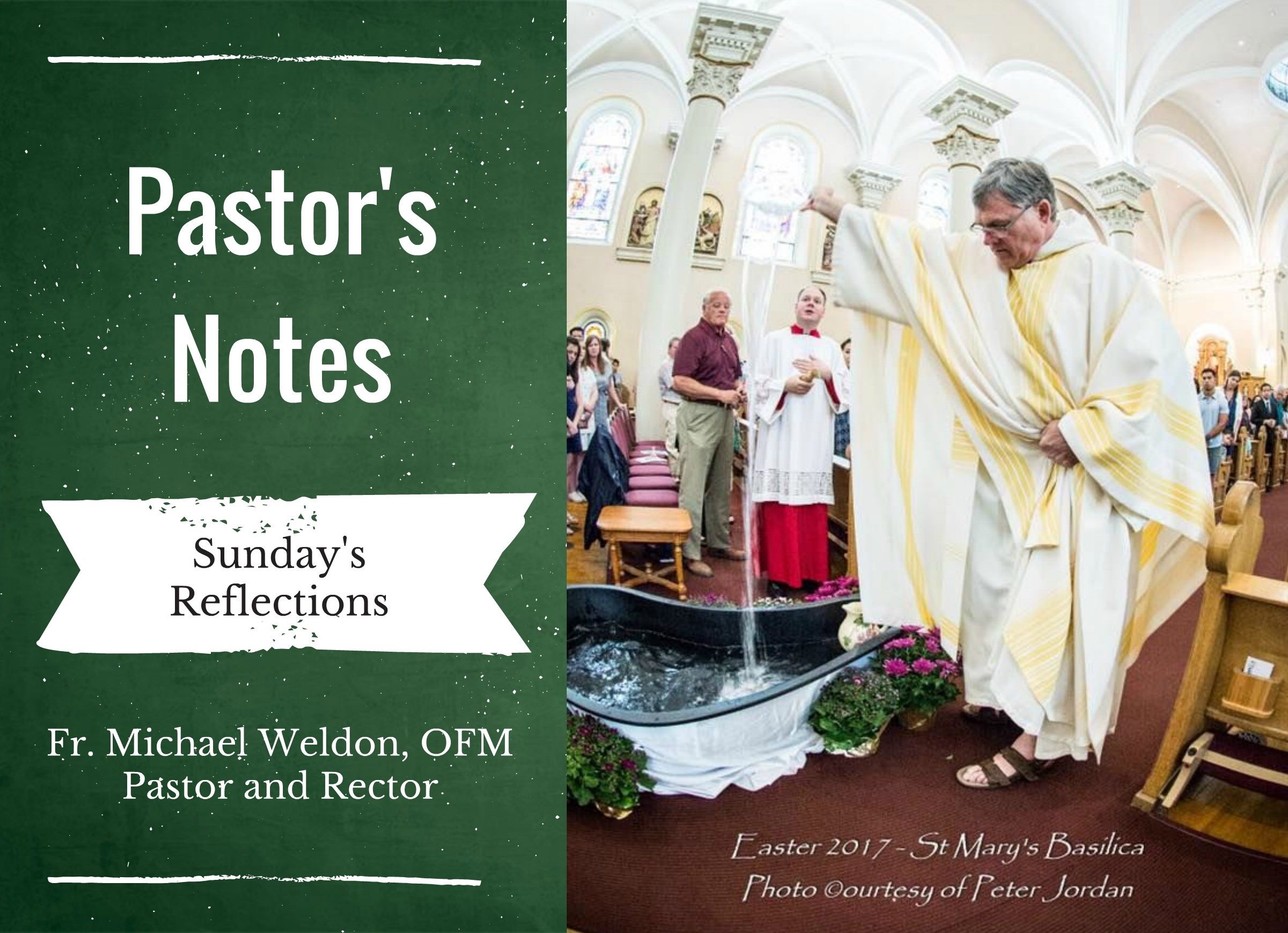St. Mary's Basilica
Phoenix, Arizona
Pastor’s Notes

“Easters”
Flowers were everywhere this season! Since the great vigil on Holy Saturday, flowers have been banked especially around the altar and Easter Candle. The smell and visual image of the “Felices pascuas floridas” is a powerful sign of the paschal mysteries we have been celebrating. Special thanks to Uriel and his team. But as the weeks move on, it is a full-time job to keep the Easter flowers brilliant. The heat came early and slowly they wilted. A few years ago, a priest friend coined the word, “post-paschal depression.” After the high and energy of the resurrection, it is difficult to keep the Easter spirit going for 40 days. Keeping the resurrection witness fresh, takes that same kind of care and focus.
These Easter days, the Easter Candle is prominent, we sang the “Exultet” there, and incense it throughout the season. At funerals it burns with our resurrection confidence. The Constitution on the Liturgy from Vatican 11 says there are five presences of Christ in the liturgy: in the Eucharistic elements of bread and wine, in the priest himself, in the other sacraments, in the assembly and in the proclaimed Word. Hard to know which direction to genuflect! The flowers in front of the ambo (pulpit) focus on that presence in the scriptures. Jesus’ life, death and resurrection are also present in the proclaimed Word of God. When the Word is proclaimed, as noted in the last line of the weekend’s Gospel passage, Jesus opens the minds of his listeners to understand the Scriptures.
The Risen Master then says one more thing to them…and to us. “You are witnesses of these things.” The liturgical assembly is incensed regularly in our most formal liturgies. We are a holy people. Hearing the Scriptures opened is not a Bible class or historical look-back. Once the disciples experienced the risen Christ, they were reminded by the Lord resurrected to give witness to all they had heard and seen.
That is the task also of we “latter day” disciples (to borrow a word from our Mormon neighbors). Keep the mysteries fresh in our relationships, choices, investments, leisure and work. Bring to bear all we have seen and heard – first in the parking lot on the way out…and then to the ends of the earth. Big Job.
In “The Wreck of the Deutschland,” poet Gerard Manly Hopkins used “Easter” as a verb. As a nautical term, to “easter” means to steer a craft eastward, into the light. Easter as a verb is not just the name of this great mystery, we began two Sundays back. Easter is something we think, something we feel, and something we do.
“Let him easter in us,” that we may live in the light of his compassion, peace, justice and forgiveness.
“Let him easter in us,” that we may be a healer like him, a teacher like him, a foot washer like him.
“Let him easter in us,” that we may bear our crosses for one another as he bore his cross for us.
“Let him easter in us,” that we may, at the end of our voyage, “Easter” in him.
A gentle week.
Fr. Michael
